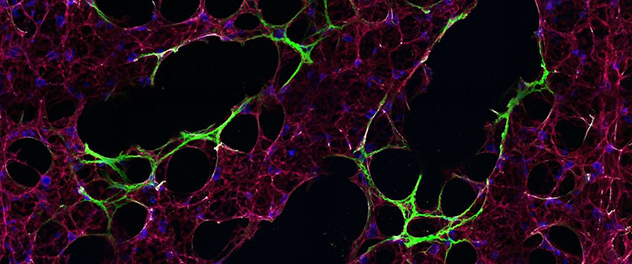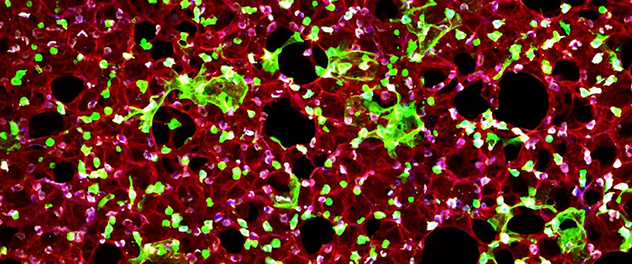-

Immunostain of an adult mouse lung reveals precise microenvironmental patterning
This image shows mapping construction of the lung by confocal microscopy.
-

Reconstructing cell fate dynamics via single-cell RNA-seq (scRNA-seq)
This image shows Uniform Manifold Approximation and Projection (UMAP) plot integrating Velocity with Leiden analysis of mouse lung cells from late embryonic time points.
-

Fate plasticity revealed through the use of genetically engineered mouse models
Lineage tracing via green fluorescent protein (GFP)-labeling shows fate conversion upon deletion of an identified transcription factor.
Overview
The Lung Development and Regeneration Lab of Douglas G. Brownfield, Ph.D., studies lung development, repair and regeneration with the goal of improving the treatment of pulmonary disease. Using single-cell transcriptomics, genetically engineered mouse models and 3D organotypic culture, Dr. Brownfield's lab maps the lung's cellular and molecular components at single-cell resolution over time and identifies regulators of their proper construction.
The lab's multidisciplinary team applies their findings in adults to determine whether regulators are reinitiated after injury, disrupted in disease, or useful in the development of regenerative therapies that repair or replace defective tissue.